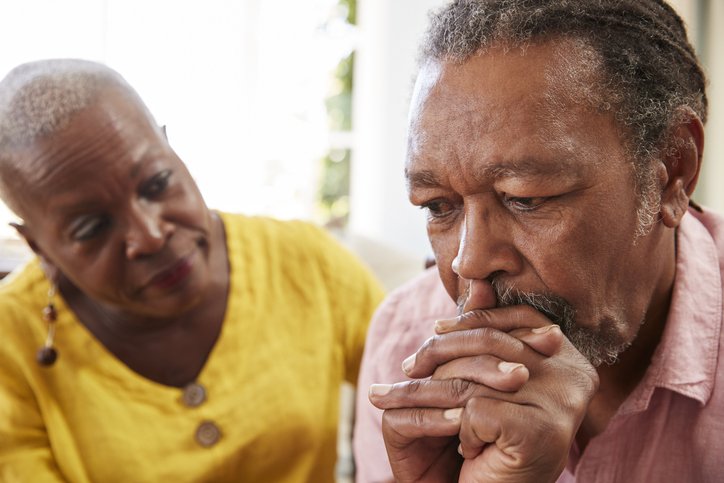Have a Good Death: Making the Most of the Final Stages of Life
Why is it so important to understand what to expect at the end of life? Because if we know the conditions for a good death, we are more apt to prepare ourselves and the ones we love to die with dignity and the sense of a life well-lived.
People who are dying should be treated as living human beings. They will have good and bad days. The important thing is for caregivers and family members to be mindfully present, watch for signs and symptoms during the dying process, and above all, to listen.

Read on for the most common occurrences that take place when a person is close to death:
- Sleeping more. Several weeks or months before the end of life, a dying person may begin to sleep more than usual. This is the result of a failing metabolism. Without a natural supply of energy, fatigue takes over. Let your loved one sleep as much as desired and help him or her find a comfortable place to rest when tired.
- Confusion. The brain remains active during the dying phase but because circulation is decreasing, it’s not uncommon for a person who is dying to have moments of confusion or incoherence. You can help by remaining calm and speaking quietly. Reassure your loved one you’re there to take care of them and introduce each new person who visits.
- Eating and drinking less. People who are near death may not even be interested in some of their favorite foods. A few days before death, your loved one may stop eating or drinking entirely. This is because the body is preparing to shut down and doesn’t need the nourishment and energy that food and drink provide. Allow them eat when they’re hungry but don’t force the issue. Hydration is important, so offer your loved one ice chips or ice pops as long as they are able to swallow.
- Withdrawal. It’s not uncommon for people who are dying to slowly become more isolated. This doesn’t mean your loved one doesn’t enjoy the company of their family and friends. Allow visits as long as he or she feels comfortable. Some people don’t wish to let others see them dying, so they may isolate themselves further in their last days.
- Changes in skin color. As blood circulation diminishes, the hands and feet may become colder and the skin may become blotchy and purplish. This is known as mottling. The mottling may slowly work its way up the arms and legs, and the lips and nail beds can also turn blue or purple.
- Agitation. Restlessness and sleeplessness occur in some individuals at the end of life. Your loved one may pick at the sheets or clothing in a state of agitation This may be caused by disease processes, decreased oxygen in the brain, medications, or for other reasons. Remain calm and supportive, and speak softly. Try to focus his or her attention on uplifting conversation, favorite movies or pleasant music.
- Hallucinations. Your loved one may tell you that they see long-gone friends and family in their final days. Arguing over what’s real and what isn’t will only cause confusion and frustration. Instead, ask questions to help understand who or what they’re seeing.
- Change in breathing. This is often an alarming sign for people who care for a dying loved one. These breathing fluctuations may include sudden gasps for air or long stretches of time between breaths. While labored breathing may be distressing to you, your loved one likely isn’t even aware of it. Some pain medications can make breathing easier, so talk with his or her doctor, hospice care or palliative care provider about ways to ease breathing or coughing.
- Pain. The intensity of pain typically increases as a person approaches death. It’s not uncommon for a person to show visible signs that they’re in pain, such as grimacing, wincing or groaning. Pain medicine is available in a hospital or nursing facility. An intravenous (IV) line may be necessary to deliver the pain medicine if your loved one is unable to swallow.
It's distressing to learn that a loved one is reaching the end of his or her life, but knowing what to expect can make it far less upsetting for everyone involved. If you've hired hospice professionals, they can help make your loved one's last weeks and days as comfortable as possible, and also support you as you go through this difficult time. If you need additional help, the Family Caregiver Alliance and the National Hospice and Palliative Care Organization are two of the many organizations that provide support. Our caring funeral directors are always here to assist you, as well. Please reach out to us anytime.
About Batchelor Brothers Funeral Services: As a leading African American-owned and operated funeral and cremation organization serving three states, Batchelor Brothers Funeral Services has provided a ministry of care to thousands of grieving families. We promise to provide our highest level of distinguished service and respect to families who entrust us to honor their loved one. In all aspects of the funeral process, we strive to be the absolute best and are honored to help preserve our clients’ legacies for future generations. For more information, please call us at 215-549-4700 or visit our website.







Comments